The Guardian Acclaimed thinker moves to Oxford this week to write a book reconciling Islam and Europe. By Polly Curtis
Tariq Ramadan: « I am Swiss by nationality, Muslim by religion, Egyptian by memory*. «
The well-oiled machine of the Labour conference came to a brief standstill last week. As a Guardian-sponsored debate on Islam in Britain neared its end, a Swiss philosopher was speaking in a steady tone, describing his vision of how a patchwork of communities, defined by faith and origin, could become a truly British society. A member of the hotel’s staff arrived to turf everyone out. Instead, he stopped and listened.
Tariq Ramadan has that effect on people. He has a global following, particularly among young European Muslims. CDs of his lectures sell like pop music. He’s one of the world’s 100 greatest thinkers, according to Time magazine and last week’s Prospect poll; some see him as a Martin Luther King figure. This week, he takes up a position as visiting professor at St Antony’s College, Oxford. But he’s also been accused of anti-semitism, having links to terrorists and preaching different messages according to his audience.
After the debate, with the muffled sounds of conference parties in the background, Ramadan describes the 20 years he has spent on his project to promote the idea of a compatible European-Muslim identity. As a teenager, he underwent religious training in Egypt. Back in Switzerland, he studied European philosophy, gaining two PhDs, one on Islam, the other on Nietzsche. He picked apart the Islamic scriptures and considered the laws of liberal democracies, and concluded that both were flexible enough to coexist.
But to realise this, everyone, Muslim and non-Muslim, had to be able to accept that their values might be different from those of people around them, but that they were still part of one society. He calls it « psychological integration ».
It’s a seductive idea of tolerance and understanding. But when Muslims are being accused of terrorism and extremism, what is easier: to retreat into the safety of their own community, or work their way into the wider society? It’s a difficult psychological leap, Ramadan agrees. « We need an intellectual revolution. First it’s about education. It’s about self-confidence. Don’t look at yourself as part of a marginalised minority. At the moment, there is a ‘protect yourself’ mentality among Muslims. But the best way to be respected is to give something to your society. To give value and presence. »
In Oxford, he hopes to take his ideas a step further. He plans to work on a book that will reconcile the fundamentals of Islam and Europe. He sees it as his toughest challenge yet. « We need a new understanding and a new presentation of the fundamentals. And I will teach, though as much I hope to learn from, Oxford’s students. »
Britain, he believes, should overhaul the school curriculum to include a more diverse interpretation of history and cover the contribution of all immigrant communities over the centuries.
It doesn’t seem hugely controversial. But in July, days after the attacks on London, the Sun newspaper ran a front page story about him that read: « Banned in the US for links with terrorists. Banned in France for links with terrorists. Welcomed to Britain days after the al-Qaida attacks. »
Ramadan had an American visa revoked under the Patriot Act, adopted after the September 11 terrorist attacks. No full reason was ever given and the US government has since said he can reapply; last week he did. In November 1995, he was banned from entering France. He challenged the ban and it was lifted in April 1996. The only countries he is currently banned from are Saudi Arabia, Tunisia and Egypt, after he suggested a moratorium on sharia law, in particular corporal punishment, stonings and beheadings.
He is a deeply controversial character in secular France, where he has an office and spends much of his time. « In France, » he says, « they don’t have a problem with Tariq Ramadan. They don’t have a problem with Islam. They have a problem with religion. » He has been accused of justifying suicide bombings. He maintains he has always absolutely condemned violence as anti-Islamic, but insists that he should be allowed to seek to explain. « To explain is not to justify, » he says.
Ramadan says there is a political campaign against him. « What is said about me today is exactly what was said about the Jews in the 30s and 40s. About double loyalty, saying I am not loyal to either side. »
Ramadan’s grandfather was Hassan al-Banna, who founded the Muslim Brotherhood in 1928, a political movement opposed to British imperial rule in Egypt. It believed in bringing traditional Islam into a modern context, the same idea that reverberates noisily through Ramadan’s work. His political heritage carries weight with Muslim audiences around the world.
« I’m not representative of young Muslims from disadvantaged backgrounds, because I experienced a political exile, and not an economic exile, » he says.
The Muslim Brotherhood was banned in many parts of the world, and splintered in others, and in 1954 Ramadan’s parents fled to Switzerland, where they had six children. Ramadan is the youngest.
His childhood was focused on sport and books. He played football semi-professionally, was a ski-instructor and devoured French literature. His parents moved with the socialist left in the country and the family home was a magnet for Muslims from around the world. He had friends from a variety of backgrounds. « I have multiple identities. I am Swiss by nationality, Muslim by religion, Egyptian by memory. This is the way I think it can work. » His identities are so numerous that he can sit in front of a British audience and talk about « us » and « we in Britain ». He says this is because he’s European: « As a Swiss citizen, being British is part of me as well. Us is about Europe. »
But the world struggles with his ideas. « My response is too beautiful to be true, » he says with frankness. « All the ideas that people have of Islam are of it being a threat. I’m challenging that and people can’t believe that that is possible. »
If there was any doubt left about his standing, it was eroded last month when the prime minister appointed him to a taskforce to tackle Islamist extremism in Britain. But he is critical of the government for failing to address the issue of the Iraq war in the wake of July 7.
« Of course there is a relationship between what is happening internationally and here. In one of the videotapes, [a bomber] said: ‘You are killing our brothers in Baghdad, we are going to kill you here.’ He is wrong. What he said is unacceptable. But he is building a political link. So give political answers. It’s not right to say this is a Muslim problem. It’s a political problem. »
Curriculum vitae
Name: Tariq Ramadan
Age: 43
Jobs: Professor of Islamic studies and philosophy, Freiburg University, Switzerland; professor of religious conflict at University of Notre Dame, Indiana (resigned after visa was revoked); senior research fellow at Lokahi foundation, London; visiting professor at St Antony’s, Oxford
Likes: spirituality, children, pistachio ice-cream
Dislikes: hypocrisy, disrespect, arrogance
Married: for almost 20 years to a teacher. They have four children
* and European by culture
Source : The Guardian
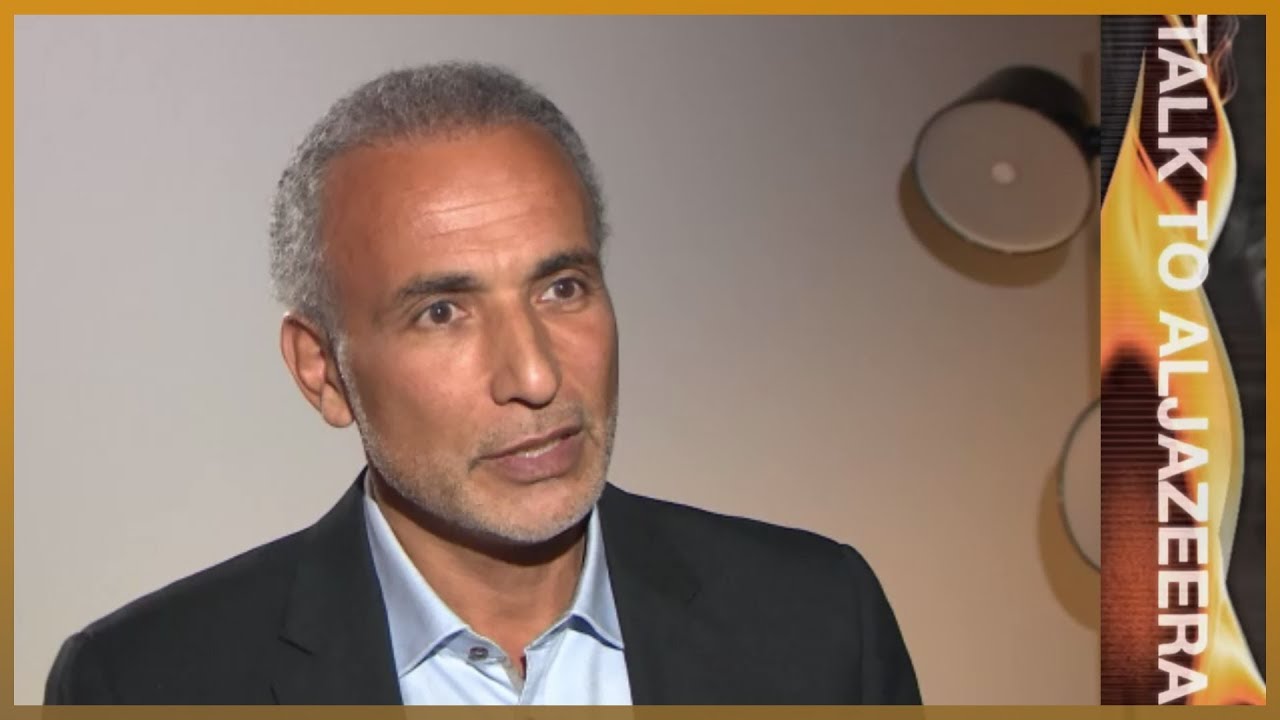

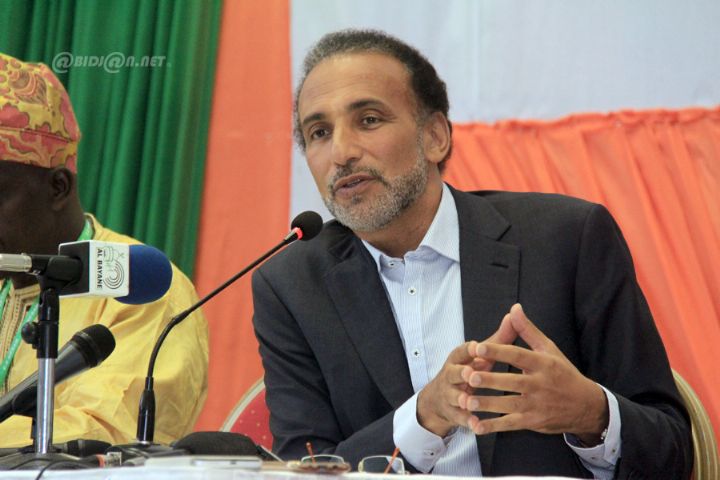
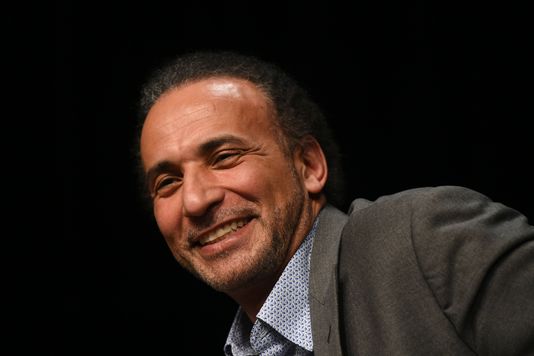
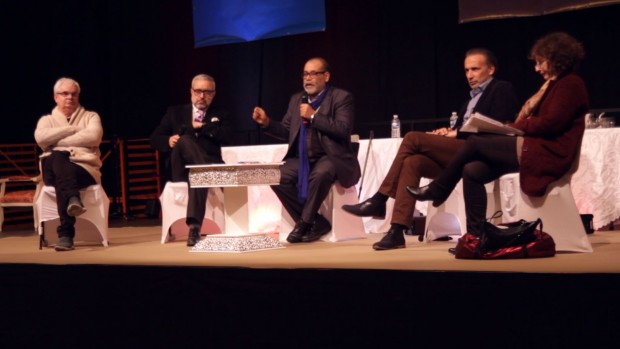
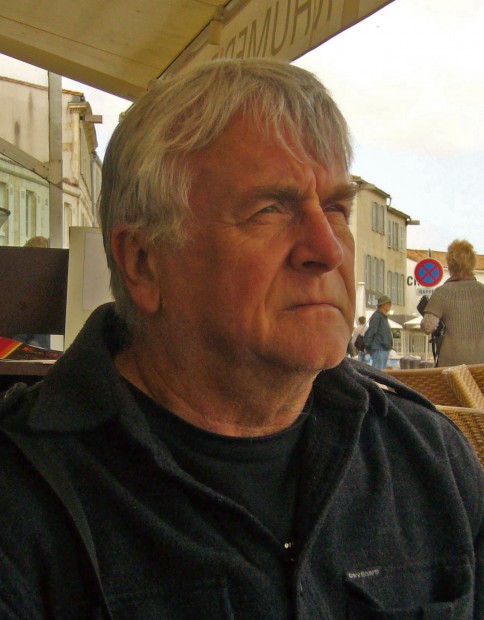



s il vous plait on veut ce texte en francais aussi
L’autre solution est que vous appreniez l’anglais.
Bon mois du Ramadan.
salam cheres freres et soeurs tt abord permettez de moi de vs envoyez içi mes sinceres et chaleureuse salutation emanant d un coeur rempli et muni de bonté et d amour et aussi a l ocassion de ce mois beni je vs souhaites ts mes meilleure voeux ety bp de foi et des fermétés ds la religion et une excellente reussite ds votre vie d içi et l audéla . à apart ça j aimerai k on ns traduit ce texte en francais pour k on puissse comprendre et de tirer profit inshallah
Salam,
1- Allez sur Altavista.com
2-Pour traduire votre propre texte
1. Saisissez ou collez le texte dans la case « Traduire du texte plein ».
2. Sélectionnez une combinaison linguistique dans la liste (par exemple : De l’anglais vers le français).
3. Cliquez sur le bouton Traduire.
4. Babel Fish traduit jusqu’à environ 150 mots à la fois
http://fr.altavista.com/help/babelfish/babel_help
Salam aleykum!
Worthy brother,I relate, in you it goes away always to doubt very much, for many motives.
First that you are a grandson of darling Maestro Hasan The Benna, and second that in the good many .Se doubts they look for hidden motives, a good is not accepted without prevention. You are popular. Always it will be a side or other one against his(yours). What majority thinks you dare to say in public
.you is competitive, Moslem – European. It is difficult to accept this. They do not want to give us the same site. Complex of superiority. They do not admit us realized. Of a country to other one, we have to emigrate, for a motive or other one, to the bottom(fund) it is the same, to be a Muslim.
The Muslim / this Muslim well while this mentally handicapped, primitive, competitive in est. It is a disease of time in which we live.
The Earth of There is our house, our mosque, and his sky our hope. That There gives us force The Majestic one to like it always.
mubarak ramadan!
Salam
La lecture de l’article
http://www.oumma.com/article.php3?id_article=1712
fait la lumière sur les obscurs procédés des médias du pays de la Liberté Égalité Fraternité
Salam à toutes et à tous, je voudrais juste inciter les gens à lire ce texte et pour ceux qui ne comprennent pas l’anglais; de faire l’effort de le traduire.En effet, cet article est très intéressant dans le sens oû il résume d’une manière plutôt objective toutes les rumeurs émises par les médias au sujet de Tariq Ramadan.
Et je voudrais particulièrement remercier Monsieur Tariq Ramadan pour nous permettre de lire l’article en anglais, tel qu’il a été écrit et pour toutes les choses qu’il nous apporte à la lecture de ses commentaires.